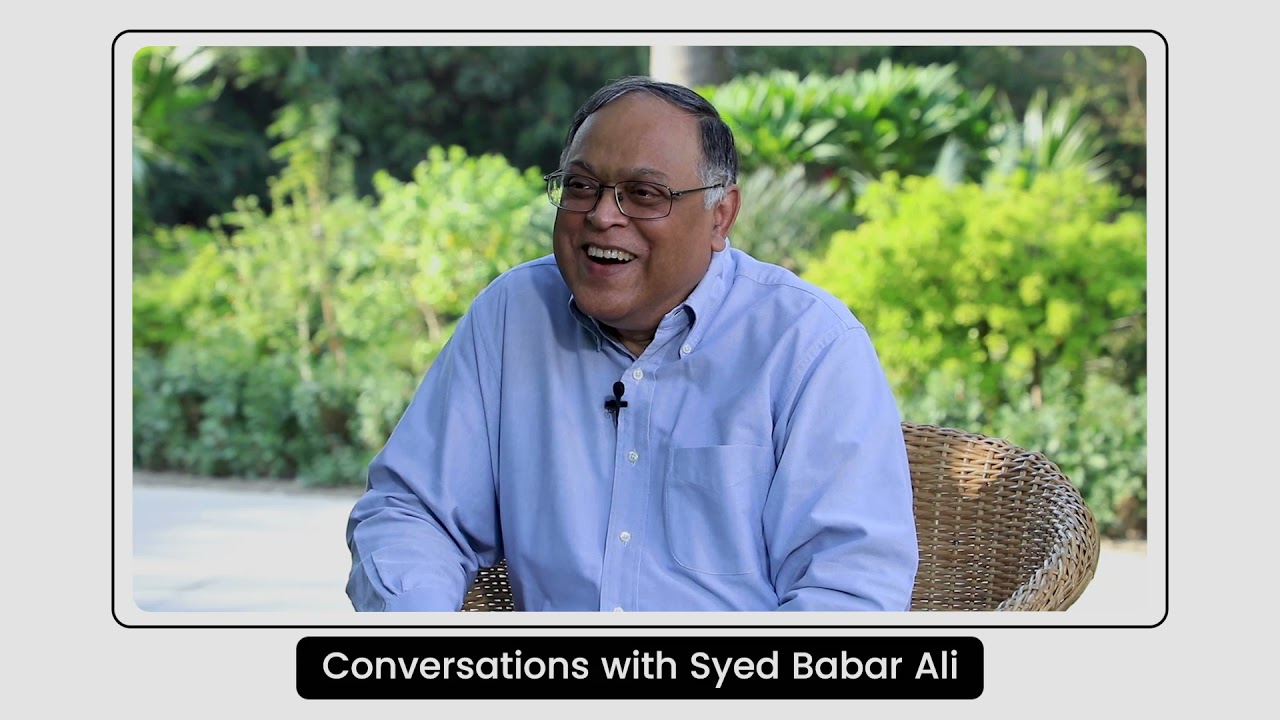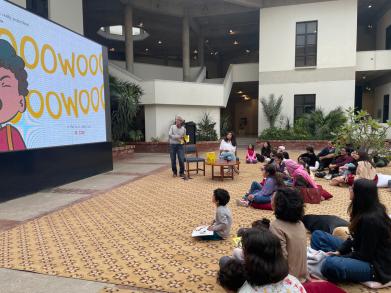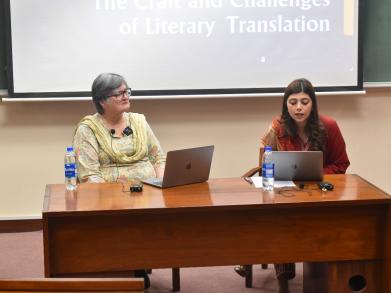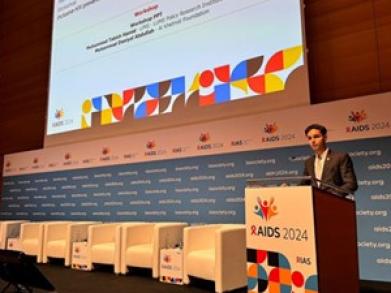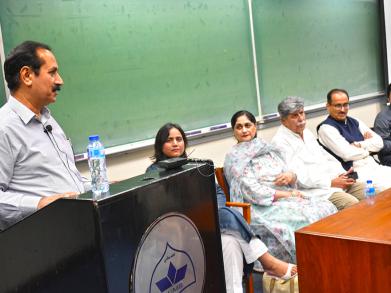Bringing Blockchain Technology to the Forefront: LUMS To Leverage Stacks Grant To Build Novel Academic Programme in Pakistan
In today’s world, blockchain technology has evolved from merely a cryptocurrency backend to a platform for supporting a variety of distributed applications. We are witnessing a rapid adoption of blockchain-based solutions in a growing landscape of applications that routinely require trust, security, privacy, scale, and censorship circumvention. Important application domains include value-added e-agriculture, digital delivery of public services, information sharing between government and private organisations, and support for disaster and human crisis management.
As one of Pakistan’s leading universities, LUMS will use the five million STX tokens (currently equivalent to about PKR 670 million or US $4.1 million) granted by Hiro, formerly known as Blockstack PBC, to develop and build educational programmes that will enable faculty and students to research blockchain, cryptocurrencies, distributed-ledger technology and more. It intends to have a decidedly practical feel, with a focus on emerging markets and other areas where these technologies can most successfully be applied.
What now has become the Stacks ecosystem started in 2013 as a research project at Princeton University. Those academic roots continue to be of central importance to the founders of Stacks and central to the culture of several leading entities within the Stacks ecosystem.
“Blockchain which began to emerge as a real-world tech option in 2016 and 2017 is all poised to change IT in much the same way open-source software did a quarter-century ago. The Syed Babar Ali School of Science and Engineering (SBASSE) has a dynamic environment where pedagogical innovation is the norm. This novel development with Stacks is sure to lead our faculty, and students usher in a new era of knowledge generation,” added Dr. Sabieh Anwar, Dean, SBASSE.
Experienced in providing full-scale support for a wide variety of funded and collaborative projects, the staff at the LUMS Office of Research will work closely with the faculty and researchers. Research and programming will be carried out in cooperation with the Syed Babar Ali School of Science and Engineering at LUMS. “Hiro’s gift to LUMS is also a gift to the country since it is targeted to develop research and educational programmes on blockchain technology. With data privacy and data ownership becoming some of the defining issues of our time, LUMS can elevate the pioneering work underway in this area,” commented Dr. Arshad Ahmad, Vice Chancellor, LUMS.
LUMS has a rich history of being a pioneer in technology and research. The University will use the funding to train the next generation of scholars, engineers and entrepreneurs through new educational programmes involving interdisciplinary courses on blockchain and its applications.
“Building and offering programmes in this field furthers our vision of being a progressive, 21st century university. This timely and generous gift will enable us to make a contribution to the emerging field of blockchain technology. This is definitely an exciting new phase that will further boost the pioneering work of our Computer Science faculty and will play a pivotal role in the evolution of the University,” said Dr. Farhat Haq, Provost LUMS.
“We will also carry out research on uses of blockchain in novel applications especially in the context of emerging markets. LUMS has always been at the forefront of academic innovations, delivering quality education, and training students well versed in cutting-edge technologies. The collaboration with Stacks is another big step in our mission of embracing the impactful technologies into our curriculum and research agenda,” commented Dr. Zartash Afzal Uzmi, Associate Professor, Departments of Electrical Engineering and Computer Science, SBASSE.
Muneeb Ali, a LUMS alumnus, BS Computer Science 2003 and Founder of Stacks, added, “LUMS has always been a hub of cutting-edge research and innovations and I am proud to have a long association with the Syed Babar Ali School of Science and Engineering. Crypto networks are likely the biggest tech resolution since the internet itself. This new collaboration on crypto not just strengthens my association with LUMS but can prepare the next generation of engineers and entrepreneurs to architect the next generation of the internet by leveraging the blockchain technology.”
Stacks Pakistan, the local Stacks chapter launched in late 2020, is focusing on awareness, community building and advocacy. The chapter has launched the ‘Stacks Developers Guild Programme’, or SDG, in seven cities across Pakistan. Through a network of ambassadors, SDG leaders are playing a pivotal role in spreading awareness across universities in Lahore, Karachi, Islamabad, Quetta, Peshawar, Faisalabad and Abbottabad. A series of boot camps are being conducted on a national level to engage students and young professionals in developing Decentralised Applications.
The Pakistani community is growing steadily, and they will ramp up advocacy efforts that are in the pipeline. These efforts involve a nationwide campaign, including roundtable conferences and focus groups that will educate different industries and stakeholders on the potential of incorporating Web 3.0 into their businesses as well as identify the need for a Crypto Regulation in Pakistan.
Commenting on the recent development, Dr. Ihsan Ayyub Qazi, Associate Professor, Department of Computer Science, LUMS and the PI at the National Center for Big Data and Cloud Computing said, “The vision of Stacks is exciting, timely and very much needed as we enter the fourth industrial revolution where the ability to define and exchange digital assets in a transparent manner will be a key technology. This will not only enable new business models but is also expected to usher in a new era of novel distributed applications over blockchain. Stacks Pakistan is laying the foundations for this change and will immensely benefit Pakistan.”
“The vision of Stacks is to give ownership and control of data back to the user and level the playing field for all. It is an inevitable shift for the world but it will take its due course with each region. As Stacks Pakistan, we are building the grounds for our nation to fully benefit from this technology in years to come,” said Nabeel Qadeer, Country Consultant, Pakistan.
This collaboration is a landmark partnership into the future of blockchain technology and will serve to open up new avenues in the field.





